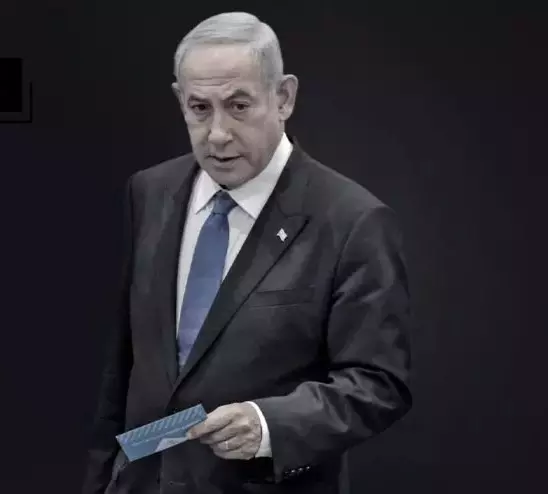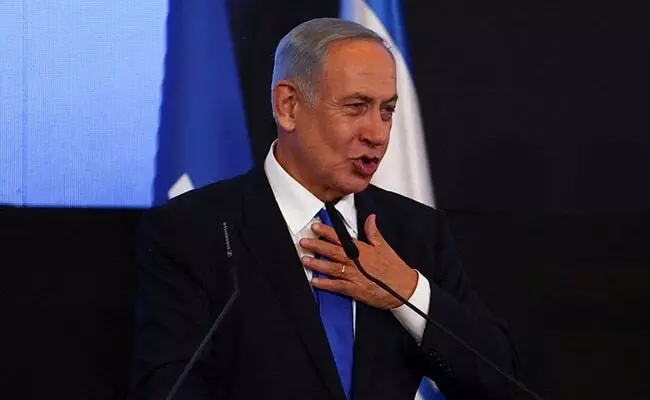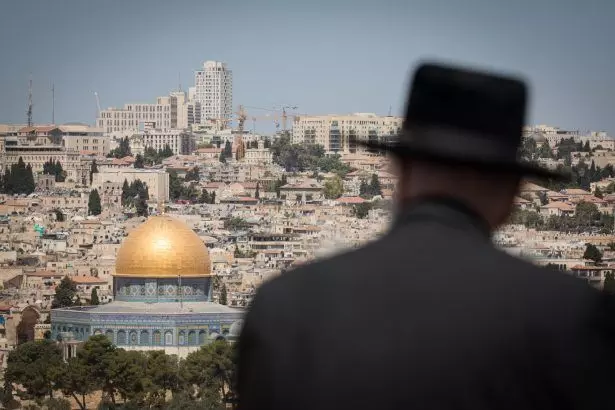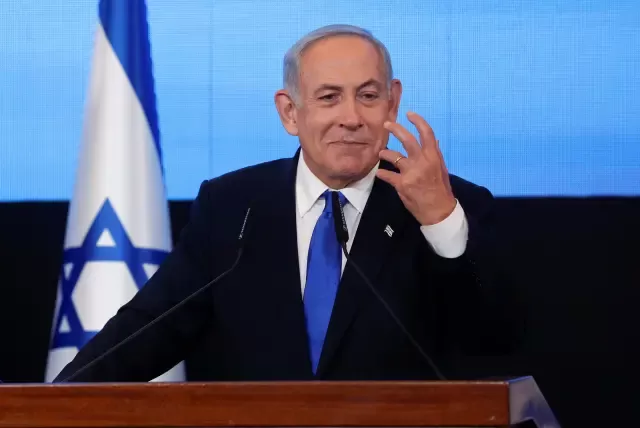
When Netanyahu retakes power...
text_fieldsFollowing an unexpected victory in the Israeli parliamentary elections held on November 1, former Prime Minister Benjamin Netanyahu is set to retake power. In the 120-seat Knesset, Netanyahu's Likud party won 32 on its own and 64 for the coalition alliance in total. With this, Israel's recent series of elections has been temporarily put on hold. The governments that took office following the elections in April and September 2019, in March 2020, and finally in March 2021 soon had to leave office either due to a lack of a majority or due to desertion by partners. In April this year, disagreements ultimately reduced the number of members to 59, and in June a unanimous agreement dissolved the Knesset, with Yair Lapid remaining as caretaker prime minister. This month's election was held after that.
Netanyahu, who is considered to be a wily kingpin of Israeli politics, won a fairly good majority with solid support from right-wing and conservative groups. He had a long political career spanning the 1990s and was first elected prime minister in 1996, becoming the first prime minister born after the birth of the State of Israel. And he was the youngest Prime Minister of the country. The Likud leader now has the distinction of becoming the longest-serving Prime Minister with the latest appointment. Power has not always been secure even back then. Netanyahu's opponents themselves agree that despite being embroiled in severe allegations of corruption, he consistently manages to survive and advance to new positions. He has served as prime minister three times since 1996 with various fronts, but it is only now that he is receiving slightly more backing.
The world in fact pays attention to Israeli prime ministers more to the extent of its foreign policy. And half of that policy consists in the Jewish state's relationship with Arabs around it. Arab natives make up one-fifth of the nation's population. Even supporters of Netanyahu who believe the nation will become more secure, stable, and progressive do not anticipate any favourable changes regarding the problem of Israeli annexation of Arab territories. The likelihood of it intensifying is often present. The external threats that Israel frequently cites as justification for its excessive militarization don't exist anymore. Today, Iran is more preoccupied with domestic issues. Their main foreign relations issue is the nuclear deal signed by the United States and the European Union in 2015 and reviving it after Donald Trump cancelled it, Iran's concern mainly being the sanctions that got enforced due to the US decision. Near secure peace treaties exist between Israel and its neighbours Egypt and Jordan. Among the Arab states themselves, relations have been normalised with the UAE and Bahrain under the peace treaty called the Abraham Accords signed with the US as witness. The same is true for Sudan and Morocco. The Abraham Accords are generally seen as a way of establishing normal relations by agreeing to minor concessions by Israel on the issue of land annexation.
What will be Netanyahu's new strategy for dealing with Arabs living in Israel and the occupation of the West Bank and Gaza, which are independent Palestinian territories? Will he resume his previous model of shooting and shelling internal protests to kill resistance in blood? The approach used by Netanyahu is not the way to end the Arab-Israeli conflict. There is a strong possibility that new building projects will be undertaken to bolster Israel's presence in the Arab-occupied area. While more nations are now being roped in to recognise Jerusalem as Israel's capital, and to move their embassies there, efforts by the international community to make East Jerusalem the capital of a proposed Palestinian state will have a dim prospect. With allies who do not accept in principle, the existence of two independent nations in the region, the prospects for peace will fade again. In short, Netanyahu's ascension to power does not bode well for peace in West Asia.


























